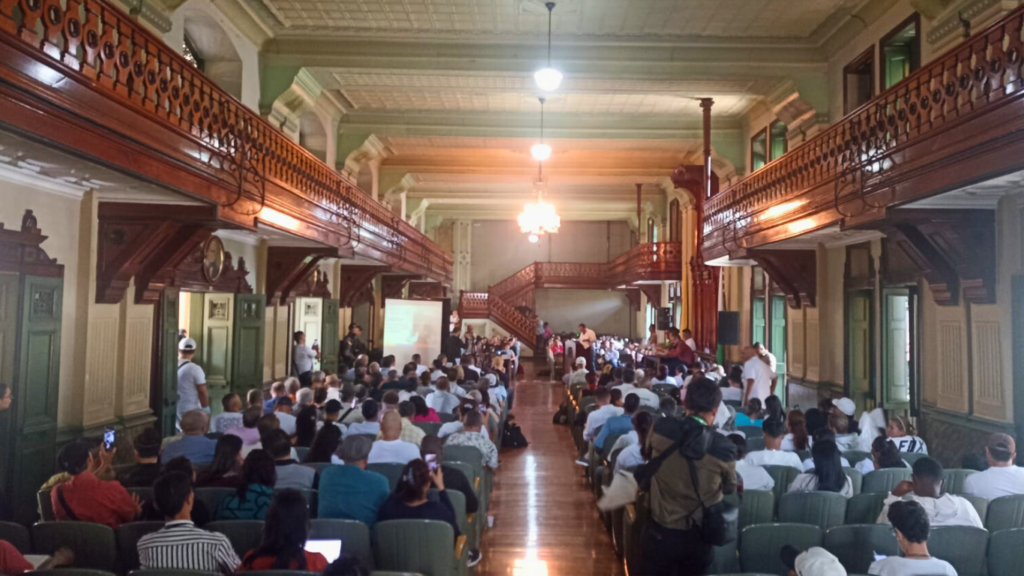We are celebrating 30 years since the first urban peace agreement in the city. It took place between 1993 and 1994, when we sat down to talk with the urban militias of the city and the Valle de Aburrá
As the Popular Training Institute, 30 years ago we bet on that peace process in Moravia, and we learned a very important lesson, Minister Ángela Buitrago: it is the armed groups that impart justice, coexistence, security; at the time the alternative we had to replace that was precisely the alternative mechanisms of justice: peace judges, conciliators in equity, conciliation centers, among others. Those figures of the 90's are lost today, and is very necessary to re-strengthen community justice and that the armed actors have a commitment to deliver justice and community coexistence to the urban communities, in a progressive manner.
Here it is fundamental because we have been in this conflict for 50 years and there are families that are already in the fourth generation of children in the service of the armed conflict, which shows that there is a very strong societal decomposition.
Once upon a time, a research conducted by the University of Chicago and Eafit University, made a survey applied in almost all the neighborhoods of the Valle de Aburrá and there was a question that was key and that today is still very key: “if the ‘boys’ leave the neighborhood tomorrow, do you feel safer or more insecure?” Everyone answered more insecure. There is a de facto reality there.
We cannot leave this discussion in the background. It is not simply a matter of accepting justice and that is where civil society has to be a social and political actor in the negotiation process. If previous reincorporation processes have shown us anything, it is that it is a bad idea not to count on civil society, because it is precisely that civil society that is going to welcome these people, as is happening to us with the Farc reincorporation process and as has happened to us with other previous processes. It is important that civil society really surrounds this space and that there is an effective protocol.
Finally, we would like to make a proposal to you, senators: it is necessary that there be a space for political control in the plenary of the Senate on the subject of Urban Peace and that we ask the Peace Commissioner, Otty Patiño; the Governor of Antioquia, Andrés Julián Rendón; and the Mayor of Medellín, Federico Gutiérrez: What is your commitment to peace in the territory? Because here civil society is showing political will but our leaders are not.
